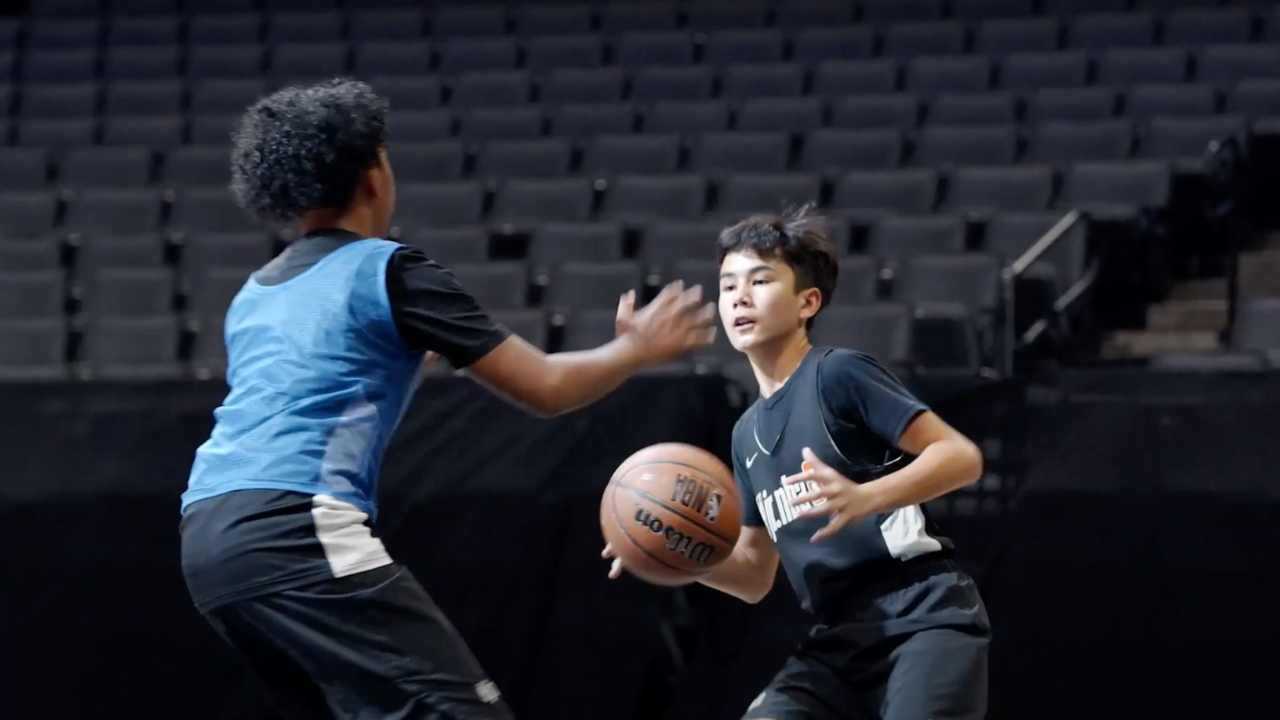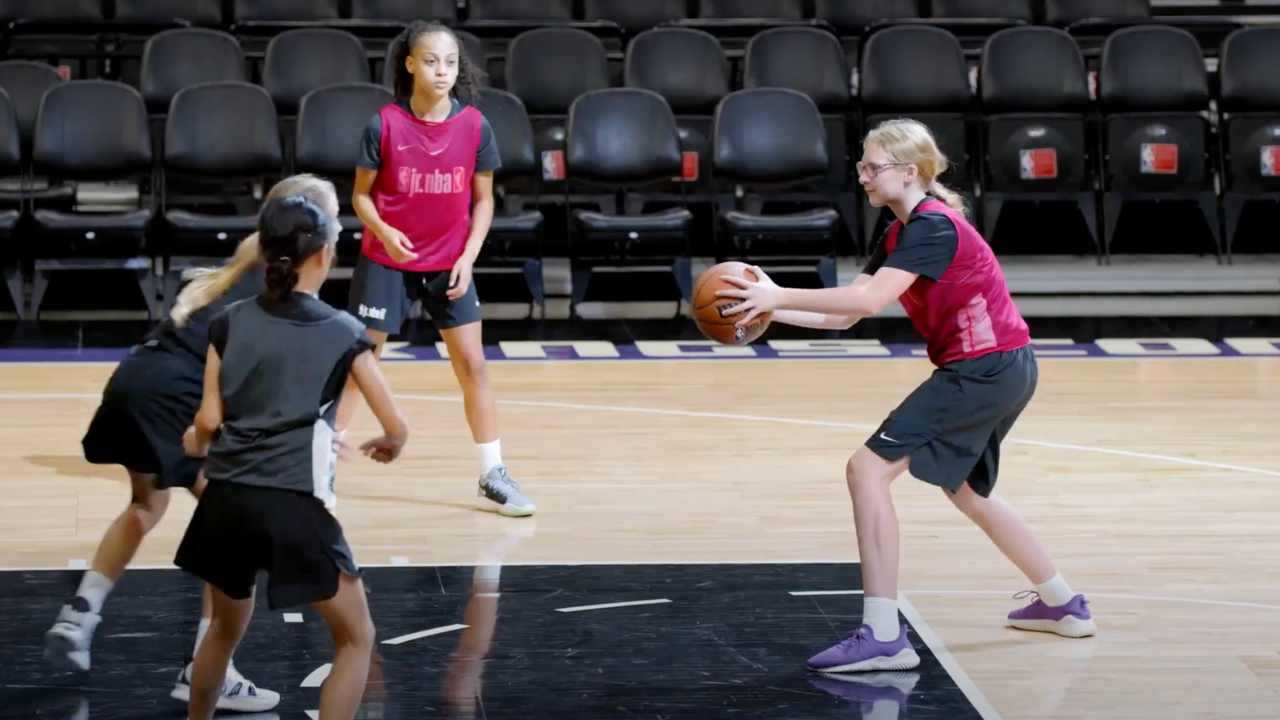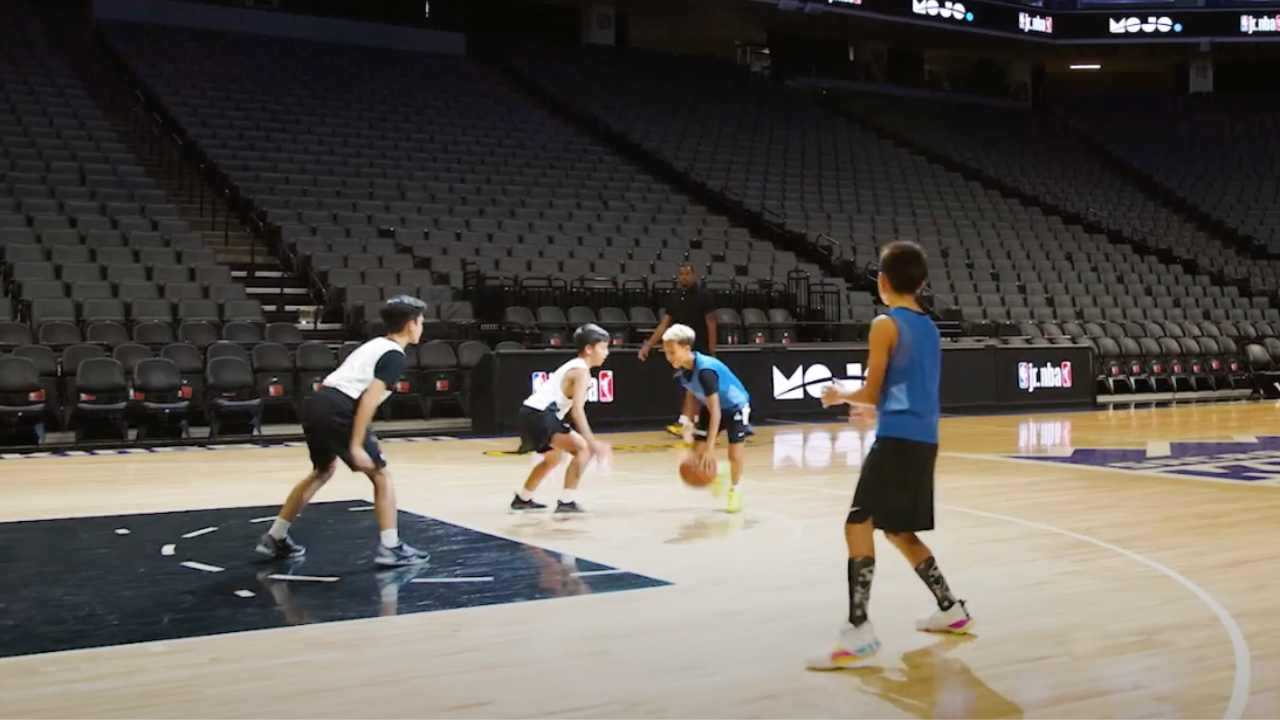Game Day Advice for Youth Basketball Coaches
Long-time basketball coach Shawn Granberry has a few tips for first-timers
Laura Lambert
| 5 min read

When you grow up playing basketball for your dad, it gives you a unique perspective on coaching the game.
“I’m a second generation coach,” says Shawn Granberry, CEO of HipHopTV and long-time Oakland, California, basketball coach. “My dad was very vocal, he ran complex plays and I inherited everything he did.”
In 2011, Granberry founded the Bears Youth Basketball Academy, alongside his childhood friend, NBA Hall of Famer Jason Kidd. Those kids, who were in the 3rd grade when they first joined the Academy, are now in college, and Granberry has shifted his passion for coaching and youth development to basketball skills camps, run in partnership with Oakland Parks and Recreation Department.
Dozens of seasons, hundreds of players, and a perspective on coaching honed by his work with Coaching Corps, a MOJO partner that ensures that kids in under-resourced communities still get the best coaching available, means Granberry knows a thing or two about game day. And here’s his advice for parent-coaches at any level.
For older kids, practice and game day don’t have to be that different
If you practice at game speed — which, as a basketball coach, Granberry strives to do — then game day and practice feel pretty similar.
“Practice is always very fun for us,” he says. “We run our plays. We scrimmage. It’s almost like a game, the kids go so hard.” On game day, Granberry is looking for those lessons learned at practice, and for the players to make good game-time decisions.
But that assumes young players have the basics down already.
For younger kids, it’s more go with the flow
“From a coach’s perspective, I never put a lot of pressure on them,” says Granberry, of working with the youngest players. Learning and development take time. “Keep teaching the kids what you taught in practice and it flows into the game.”
For him, it’s all about keeping perspective. “When you’re suddenly volunteer coaching young kids, it’s all for the fun,” he says. “You can’t be too serious with it.”
Live with the results
“I always say, Let’s leave it all on the floor,” says Granberry. That said, the outcome of the game is not necessarily the point.
“As a child, I was 140 and 3,” laughs Granberry. “My dad only lost three games in his own coaching time, so my life is a little biased.”
Not winning is just as important.
“One good thing about sports, it teaches you how to deal with loss,” says Granberry. “You don’t always win your games. You lose.” And learning how to deal with loss in a positive way can change you for life.
After facing a loss, he explains, “we would talk about it as a group. It’s not just the coach, but all the teammates, circling in and supporting the one player that is maybe very upset,” says Granberry. “It really makes a difference.”
It’s all about empathy
As a 12-year veteran with Coaching Corps, Granberry has gone through numerous coach trainings on everything from youth development to empathy, which he is passionate about.
“My dad, he had a lot of empathy,” says Granberry. “I don’t know where the training came from — that was just the kind of coach he was.”
Empathy — being able to appreciate the perspective of others in order to connect with them — creates better players, and a better team, he says.
“I see a lot of coaches that don’t use empathy in their coaching,” Granberry says. “All the yelling and cussing and kicking chairs — the stuff you see some coaches do — is actually inflicting a lot of harm on kids, instead of building a better, whole person.”
Keep it positive — always
Granberry amidst that he’s a vocal and emotional coach, game day and otherwise, but the difference is that the feedback is relentlessly positive. And he asks his players to join right in.
“I’m always teaching them to congratulate each other,” he says. “Over time, they learn, so whenever someone does something good, it’s Great rebound. Great shot. Great move.”
The positive feedback even extends to the other team on the floor.
“I tell them, congratulate the other team. Say, Man, that was an incredible shot,” says Granberry. “By recognizing when something is done well, they’re learning the game.”
And when it comes to youth basketball, that’s the whole point.





